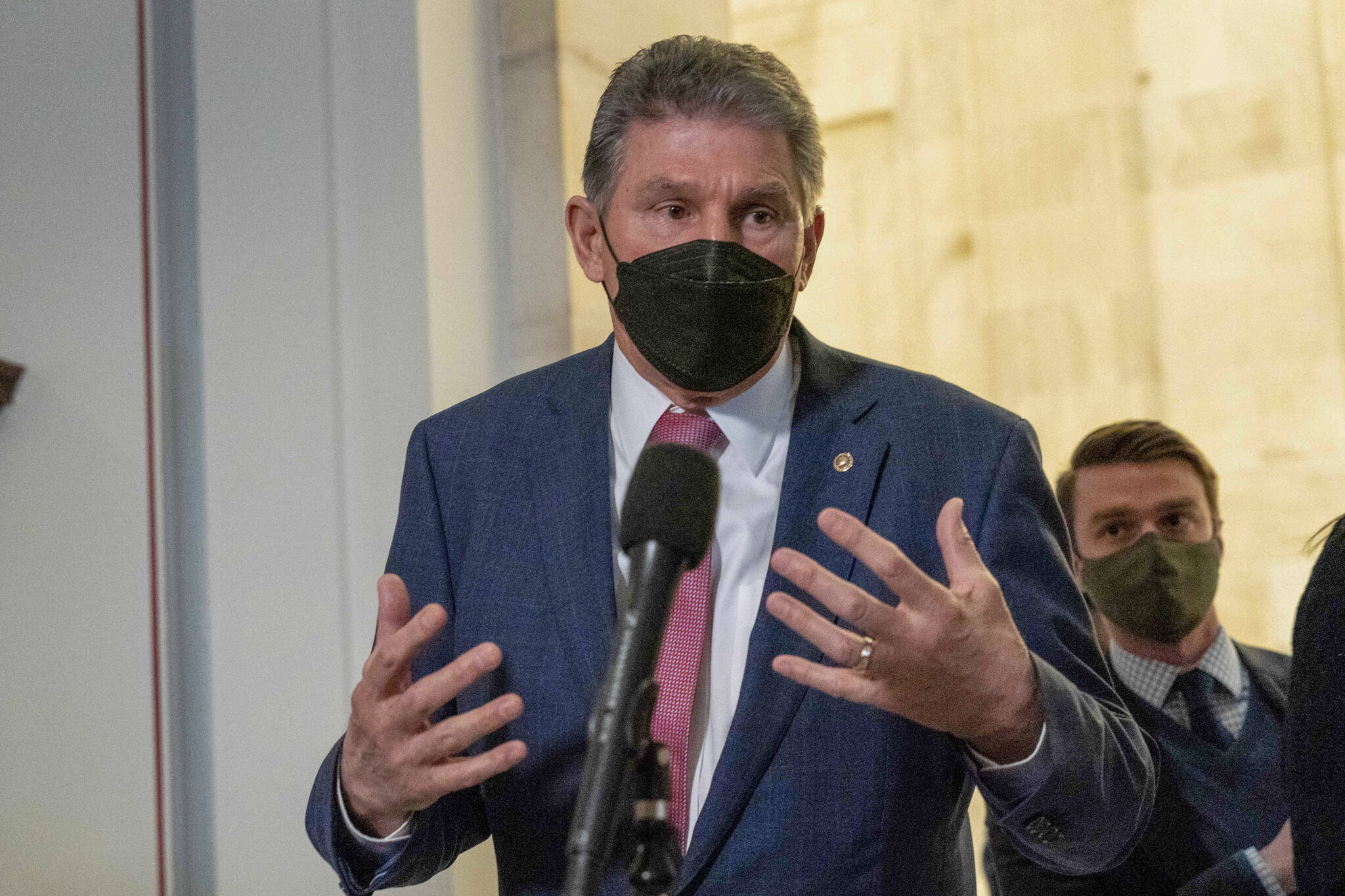By LISA MASCARO
AP Congressional Correspondent
WASHINGTON — Voting legislation that’s a top priority for Democrats and civil rights leaders seemed headed for defeat as the Senate opened debate Tuesday, a devastating setback enabled by President Joe Biden’s own party as two holdout senators refuse to support rule changes to overcome a Republican filibuster.
The Democratic senators, Kyrsten Sinema of Arizona and Joe Manchin of West Virginia, face strong criticism from Black leaders and civil rights organizations for failing to take on what the critics call the “Jim Crow filibuster.”
The debate carries echoes of an earlier era when the Senate filibuster was deployed by opponents of civil rights legislation. It comes as Democrats and other voting advocates nationwide warn that Republican-led states are passing laws making it more difficult for Black Americans and others to vote by consolidating polling locations, requiring certain types of identification and ordering other changes.
Senate Majority Leader Chuck Schumer acknowledged the current bill’s likely defeat this week. But he said the fight is not over as he heeds advocates’ call to force all senators to go on record with their positions.
“The eyes of the nation will be watching what happens this week,” Schumer said as he opened the session Tuesday.
This is the fifth time the Senate will try to pass voting legislation this Congress.
The Freedom to Vote: John R. Lewis Act combines earlier bills into one package that would make Election Day a national holiday, ensure access to early voting and mail-in ballots — which have become especially popular during the COVID-19 pandemic— and enable the Justice Department to intervene in states with a history of voter interference, among other changes.
Both Manchin and Sinema say they support the package, which has passed the House, but they are unwilling to change the Senate rules to muscle it through that chamber over Republican objections. With a 50-50 split, Democrats have a narrow Senate majority — Vice President Kamala Harris can break a tie — but they lack the 60 votes needed to overcome the GOP filibuster.
Just as they blocked Biden’s broad “Build Back Better” domestic spending package, the two senators are now dashing hopes for the second major part of Biden’s presidential agenda. They are infuriating many of their colleagues and faced a barrage of criticism during Martin Luther King Jr. Day events.
Martin Luther King III, the son of the late civil rights leader, compared Sinema and Manchin to a white moderate his father wrote about during the civil rights battles of the 1950s and 1960s — a person who declared support for the goals of Black voting rights but not the direct actions or demonstrations that ultimately led to passage of landmark legislation.
“History will not remember them kindly,” the younger King said, referring to Sinema and Manchin by name.
Once reluctant to change Senate rules himself, Biden used the King holiday to pressure senators to do just that. But the push from the White House, including Biden’s blistering speech last week in Atlanta comparing opponents to segregationists, is seen as too late, coming as the president ends his first year in office with his popularity sagging.
“It’s time for every elected official in America to make it clear where they stand,” Biden said on the King holiday. “It’s time for every American to stand up. Speak out, be heard. Where do you stand?”
The Senate is launching what could become a weeklong debate, but the outcome is expected to be no different from past failed votes on the legislation. Biden has been unable to persuade Sinema and Manchin to join other Democrats to change the rules to lower the 60-vote threshold. In fact, Sinema upstaged the president last week, reiterating her opposition to the rules changes just before Biden arrived on Capitol Hill to court senators’ votes.
Senators have been working nonstop for weeks on rule changes that could win support from Sinema and Manchin. The two, both moderates, have expressed openness to discussing the ideas, but have not given their backing.
Both Manchin and Sinema have argued that preserving the filibuster rules, requiring a 60-vote majority to pass most legislation, is important for fostering bipartisanship. They also warn of what would happen if Republicans win back majority control, as is distinctly possible this election year.
Critics have also assailed Senate Republican leader Mitch McConnell, who is leading his party against the voting legislation. The Kentucky senator has argued the legislation is a federal overreach into state-run elections, and he harshly criticized Biden’s speech last week as “unpresidential.”
“We cannot think of a time more defining to the American story than the chapter you are presently writing,” NAACP President and CEO Derrick Johnson wrote in an open letter to the Senate.
“What country will your children and grandchildren be left with, given the relentless assaults on American freedom and democracy?”
Manchin spokeswoman Sam Runyon said in a statement late Monday: “Senator Manchin believes strongly that every American citizen of legal age has not only the right, but also the responsibility to vote and that right must be protected by law. He continues to work on legislation to protect this right.”
Sinema’s office did not respond to a request for comment.
The voting bill was the Democrats’ top priority this Congress, and the House swiftly approved H.R. 1 only to see it languish in the Senate.

